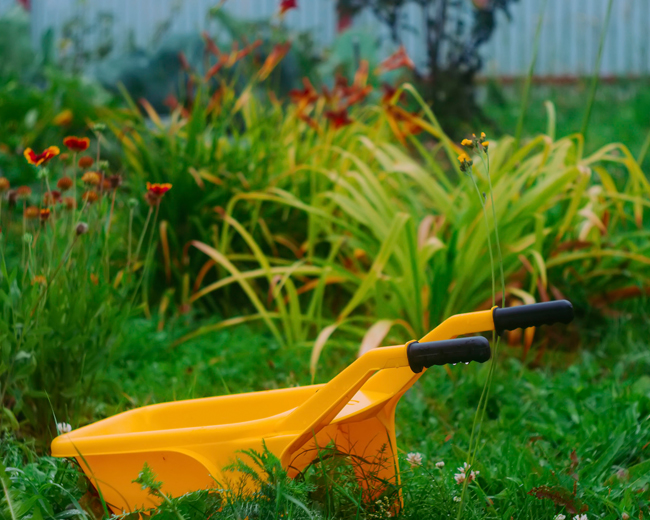The importance of cultivating little green thumbs
Encouraging your toddler to nurture a garden not only teaches them the importance of caring for the environment, it also has a multitude of benefits for their growth and development.
There are numerous benefits for teaching your children to enjoy a garden.
“A garden is a sensory playground for children that’ll engage all their senses,” explains lecturer and early learning educator, Simone Tonkin.
Activating the senses
In a garden, little ones can:
- Touch and feel different flowers, shrubs, leaves and trees (provided they’re not poisonous).
- Walk barefoot on the grass or sand which helps to improve posture, foot strength and proprioception
- Listen out for different nature sounds such as birds singing or insects buzzing
- Look and identify various flowering plants, trees, insects, shrubs
- Taste home-grown fruits, vegetables, or herbs
- Smell everything from flowers to grasses, and various shrubs. Lavender, jasmine, peonies, lilies, and roses all have distinctive scents.
Numerous studies have also shown that gardening sharpens memory and focus, relieves stress, and reduces symptoms associated with ADHD. It also has a positive impact on mood and overall well-being in both kids and adults.
Gardening allows children to develop a range of gross motor and fine motor skills too, especially if you encourage your little one to dig and plant flowers, weed, rake leaves and water the garden, says Tonkin.
According to gardening experts at Life Is a Garden (a division of the South African Nursery Association), gardening is one of the healthiest family activities you can do together as it increases bonding time and encourages outdoor exercise, while getting an essential dose of vitamin D (of course sunscreen is important too).
Spending time in the garden will equip your child with affective qualities, values, and attitudes they’ll need in life, such as:
- Patience – the process of tending to a plant and watching it grow takes time
- Responsibility – when it comes to taking care of a plant day by day, watering the garden etc.
- Self-confidence – nothing is more rewarding than seeing the fruits of your labour
- Curiosity – learning about nature, the environment and how ecosystems thrive
- Teamwork – how working together with friends or family achieves a desired outcome (such as digging a hole to plant a shrub)
- Creativity – through play – such as making “mud cakes”, collecting a variety of stones, sticks and flowers or sitting on the ground and doing sand art with a stick.
Learning about the ecosystem
There’s no doubt that gardening teaches children about more than just plants. It covers important concepts around how an ecosystem works – and the role the earth, sun, and water play in helping things grow and thrive.
Gardening also focuses on:
- Water and soil conservation
- Respecting the role insects and animals play in the ecosystem
- Learning how to recycle food scraps and compostable materials.
A virtual garden for older kids
If you have older children, aged between 7-12, in addition to spending time outdoors, they can also have the chance to create a fun, virtual garden online with Cartoon Network’s climate change awareness initiative.
The new online programme offers kids a safe place to learn about climate change and be inspired by other young change makers from around the world taking positive action to tackle the issue.
The campaign is run through their website which gives kids the chance to make a difference themselves through daily challenges, designed to inspire and motivate them to make changes at home, at school, and in their local communities.
IMAGE CREDIT: 123rf.com



